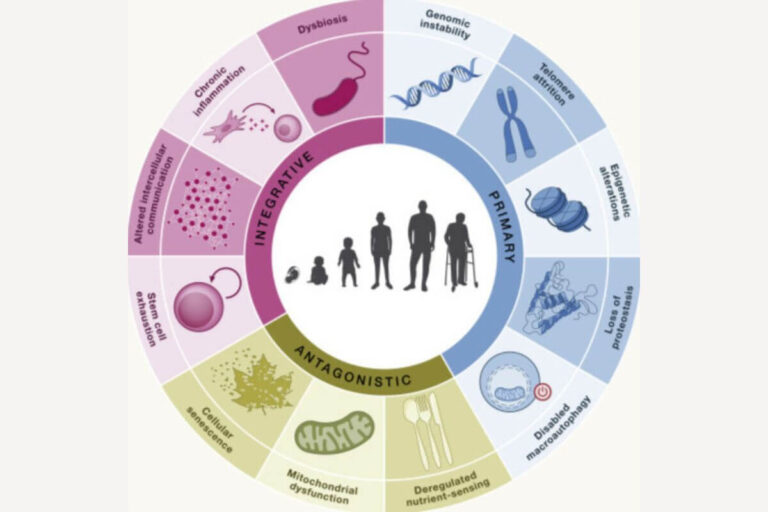Longevity is an exciting field that’s captured the imagination of scientists, entrepreneurs, and the public alike. However, as with any rapidly growing area, it’s also surrounded by misconceptions and overhyped claims. Let’s separate fact from fiction by debunking some of the most common myths about longevity—and exploring what the research really says.
Myth 1: Anti-Aging Creams Can Reverse Aging
Many skincare products claim to “reverse aging,” but these claims often rely on marketing rather than science. While some ingredients, like retinoids, have been shown to improve skin texture and reduce fine lines, they don’t affect the deeper biological processes of aging.
What the science says: Aging occurs at the cellular level, affecting not just the skin but also organs, tissues, and the immune system. Cosmetic products might improve surface-level appearance, but true anti-aging interventions require therapies that address cellular aging, such as senolytics or NAD+ boosters.
Sources:
- Harvard Medical School: “The Science of Skin Aging” Link
- Journal of Investigative Dermatology: Effects of Retinoids on Skin Aging Link
Myth 2: There’s a Miracle Pill for Longevity
From resveratrol supplements to exotic herbal blends, many products are marketed as the “key” to living longer. While some compounds show promise in laboratory studies, there’s no single pill that guarantees extended lifespan or healthspan.
What the science says: Some substances, like metformin and rapamycin, have shown potential in preclinical or early clinical trials for their ability to slow aging-related processes. However, their long-term safety and efficacy in humans are still being studied. Longevity is influenced by a complex interplay of genetics, lifestyle, and environment—no single intervention can solve it all.
Sources:
- Nature Aging: Clinical Potential of Metformin for Aging Link
- Science Translational Medicine: Rapamycin and Aging Research Link
Myth 3: Longevity Science Is About Achieving Eternal Life
The concept of “living forever” is a popular trope in media, but it doesn’t reflect the goals of longevity research. Scientists aren’t working to make people immortal; instead, they often aim to extend healthspan—the period of life spent free from chronic illness and disability.
What the science says: A growing movement in the scientific community advocates for treating aging itself as a disease or, at the very least, a treatable condition. By addressing the biological hallmarks of aging—such as cellular senescence, mitochondrial dysfunction, and chronic inflammation—researchers hope to delay or prevent age-related diseases like Alzheimer’s, cancer, and cardiovascular disease. This paradigm shift views aging not as an inevitable decline but as a process with modifiable factors.
For example, the World Health Organization (WHO) included “aging-related conditions” in its International Classification of Diseases, highlighting the potential to target aging with therapeutic interventions. This shift has opened doors for regulatory approval and investment in treatments specifically designed to slow aging.
Sources:
- World Health Organization: Aging-Related Conditions in ICD Link
- Cell Journal: The Hallmarks of Aging Link
- Nature Reviews Drug Discovery: Treating Aging as a Disease Link
Myth 4: Calorie Restriction Is the Only Proven Way to Extend Lifespan
It’s true that calorie restriction (CR) has been shown to extend lifespan in animals, but its effects on humans are less clear. CR involves significantly reducing calorie intake without malnutrition, which can be challenging to sustain and may have unintended consequences.
What the science says: Studies suggest that calorie restriction may improve health markers like insulin sensitivity and reduce inflammation, but its impact on human lifespan remains uncertain. Emerging research is exploring alternatives, such as intermittent fasting or compounds like NAD+ precursors, which mimic the effects of calorie restriction without requiring severe dietary changes.
Sources:
- National Institute on Aging: Research on Calorie Restriction Link
- Aging Cell Journal: Mimicking CR Through Intermittent Fasting Link
Myth 5: Longevity Science Is Just for the Rich
There’s a perception that longevity science benefits only the wealthy, as many treatments and technologies are still in the experimental or luxury phase. While it’s true that early access is often limited to those with significant resources, the goal of longevity research is to create scalable, affordable solutions that benefit everyone.
What the science says: Advances in technology, such as AI-driven drug discovery and genetic editing, are expected to drive down costs over time. Moreover, public health interventions—such as promoting exercise, healthy diets, and preventive healthcare—are accessible and can significantly impact longevity for people across socioeconomic groups.
Sources:
- World Economic Forum: Making Longevity Accessible Link
- The Lancet: Socioeconomic Factors and Longevity Link
Myth 6: Longevity Is Entirely Determined by Genetics
While genetics play a role in how long we live, lifestyle and environmental factors are just as, if not more, important. Research shows that only about 25% of longevity is influenced by genetics, with the rest shaped by lifestyle choices like diet, exercise, and sleep.
What the science says: Epigenetics—the study of how lifestyle factors can influence gene expression—suggests that positive habits can mitigate genetic risks and promote healthy aging. Simple interventions, such as regular physical activity, a balanced diet, and stress management, have profound effects on longevity.
Sources:
- National Library of Medicine: Epigenetics and Aging Link
- Blue Zones Research: Lifestyle’s Role in Longevity Link
Final Thoughts
Longevity is a fascinating and rapidly advancing field, but separating science from hype is essential. While no magic solution exists yet, ongoing research is paving the way for meaningful advancements in extending healthspan and improving quality of life. By staying informed and skeptical of overhyped claims, you can better navigate the longevity landscape and focus on strategies grounded in evidence.
For more science-backed insights into longevity, explore our other articles at Explore Longevity.







